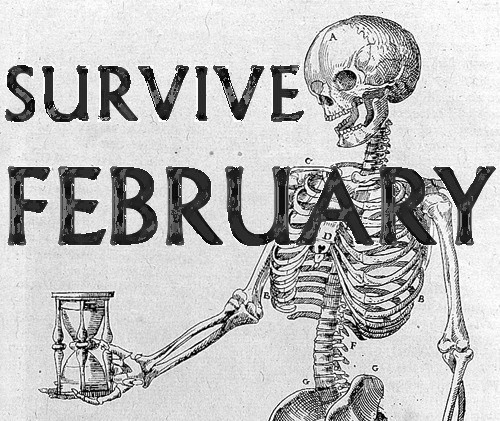Artist, poly, pan, genderfluid. We all ought to be more compassionate to one another because existing is a lot. Strive for understanding, embrace differences, love transformation. We can be wrong and silly and that's part of the fun of it. Paintings by Cedar Sun. My other blogs: @livelyyoungheart and @lovemetaprograms
Don't wanna be here? Send us removal request.
Text

Ahh, the coffee turned out just perfectly this morning. What a little heaven
0 notes
Text
How do I live?
I love. I write, and I write, and paint and paint, and sing my songs, and play my instruments, and pour my beating soul out through my heart
And when I am too tired for these,
I create a new sense,
To empty my aching longing into
0 notes
Text
Here we are darlings, here it comes along
Let's Hold the Light

But it is not done quite yet...
#literally as I place once again what I believe to be the finishing touches#painting#painter#love#life#Hold The Light#Cedar Sun Art
3 notes
·
View notes
Text
Ahh I solved my paint dilemma, this painting is truly coming along
Everything in my vision, in my touch, is infused with the color
The knowing feeling
The sweet release of tender ecstasy healing
1 note
·
View note
Text

Yes, people are "doing something".
NINETEEN STATES have joined the suit so far. In a climate this divided, that's not nothing. That's SOMETHING.
Many of the people in power know this is wrong. Others are realizing that people aren't going to stand for this forever. Keep the pressure up. Don't give up, don't give them your despair.
And don't fall victim to the illusion that nobody is resisting. The fact that you haven't seen it means it is being concealed from you, not that it does not exist. Much is being done and will be done without your knowledge. Do not let the assumption that nobody ELSE is fighting cause you to abandon the fight. That is precisely what they want to achieve.
This can be turned around. Even if you don't believe that, it doesn't hurt to act as though you do.
Keep pressing.
14K notes
·
View notes
Text
Every brushstroke is precious to me, every flick of paint, incidental quiver, impressing line
Yet must I cover these treasures...
To make them sublime?
0 notes
Text
'Somebody's got to have the sense to turn on the dim and beautiful and powerful lights of love in this world.'
From "Love Your Enemies" by Dr. Martin Luther King, Jr.

`*~¿.............
Here you are, the whole thing, the process, my newest piece in progress, my messy painting desk and wet canvas. Let's share space and inspiration and remind eachother that every little imperfect messy detail is vital to the heart of art, and that we are in this all together.
................................¿~*`
I am reading Dr. King today. His words of strength inspire me, and give me strength to hold up the light for this mission of peace.
We have a legacy to follow.
We have a momentum to sustain.
We have a future to create.
#quote#mlk jr#dr. martin luther king jr.#inspiration#painting#painter#art#new piece#artist#love#peace#light#mission#inspiring quotes#future#humanity#one people#turn on the lights
0 notes
Text
I don't know how to do it, but I do it anyway
1 note
·
View note
Text
i love you visible brushstrokes. i love you glue warped scrapbook pages. i love you awkward poems. i love you junk journal with faded receipts. i love you poorly composed journal layout. I love you unintentionally blurry photographs. i love you asymmetrical beading. i love you curling freeform crochet. i love you fingerprints on pottery. i love you reused materials. i love you improvised instruments. i love you mistakes. i love you bravery to make it anyway. i love you creativity that hasn't been wiped clean of every drop of humanity and sanitized and commodified.
47K notes
·
View notes
Text
😭 it is so incredible, we are so privileged to live in a time filled with such wonders of our universe that we could only imagine and guess at before

25 notes
·
View notes
Text

101 notes
·
View notes
Text
To cure a gloomy mood this grey morning:
Poetry by Kahlil Gibran
Text good morning with mom
Share a smile and kind words with a stranger
Listen to an uplifting and energizing song
Drink warm coffee the way I like it
Appreciate a little cat being lovey
Paint on some sparkly gold eye makeup sigils
Blueberries and cheese
Full spectrum LED light
A hearty and tasty warm breakfast with mushroom and onion and egg
Remind myself why I am here
Make/appreciate some art
Read something educational and inspiring
Play some instruments
#i am doing so good okay i am doing so good i am doing so good i am doing such a good job#the infrequency of depression days is evidence enough#i know that this will pass#i love myself so much and apreciate all her hard work to take care of me#even when there are days that we struggle and feel confused and sad i know she is doing her best and i love her so much#gratitude#peace#reparenting#depression
0 notes
Text
😭 friend I need the cinnamon rolls so badly in this weather you are so right



cinnamon roll weather...
178 notes
·
View notes
Text
Girl it isn't D you need, it's Vitamin D
Something something, melancholy feeling, something something, cry, whine..
Wait a second!
Did I take my vitamin D yesterday? Or today?
1 note
·
View note


